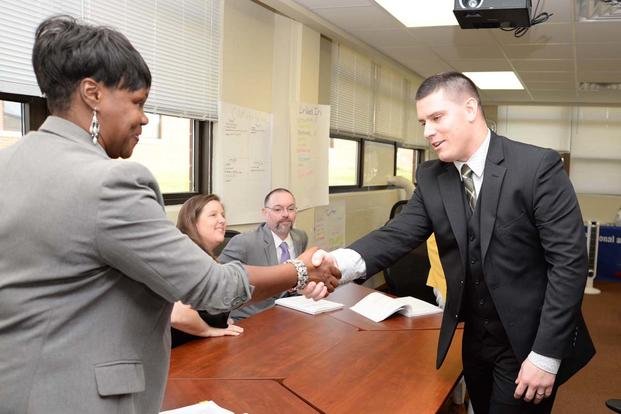You've done your research on the company; reviewed the interviewer's LinkedIn profile for insight into their personality, experience and style; and brought clean copies of your resume to the meeting. The interview starts, and the first prompt you're asked to respond to is, "Tell me about yourself."
These four words have stumped more job candidates than likely any other question. And most candidates answer it incorrectly, according to hiring managers.
What the Interviewer Is Not Looking For
When the interviewer asks you to tell them about yourself, they are not asking for:
- Your life story
- Your career history in reverse chronological order
- A list of your hobbies and outside interests
- You to describe your family, any illnesses or medical challenges you face, or any big life events you anticipate facing in the coming months or years
Related: Search for Veteran Jobs
Yet candidates reveal this information -- often in an unfocused, rambling manner -- to the dismay of the interviewer.
What the Interviewer Is Looking For
Employers understand that job candidates are nervous about the interview process, and while the question is certainly designed to put them at ease, there is much more to their reasoning behind starting here.
The interviewer, by asking you to tell them about yourself, has specifically not worded their prompt to be more direct or specific. They are not directly asking, "Describe your professional experience and skills as they relate to the job for which you are applying," or, "Tell me why you're a great fit for this position," as the opening question, but that is very much what they'd like the answer to deliver.
The interviewer wants you to respect their time by making your response relevant to the interview process, and not take them on a rambling journey through your life.
How to Respond
Your response should encompass all of your research about the company, review of the interviewer's profiles and experience, knowledge of the job and its responsibilities, and intimate understanding of your past experiences and skills and how they relate to the job, to tell the story of how you qualify for the position.
For example, you might reply this way:
Thank you for that question. I've spent the past 20 years in the Army focused on people development, process improvement and building my leadership skills. Throughout all my different jobs, I worked closely with decision makers and managed my staff to excellence, earning their support and endorsement.
I am passionate about helping teams grow their contribution and impact on the organization's goals. From what I understand about this company, and this position, you seek someone with excellent people skills, who can make decisions with confidence and clarity, and who will lead by example, building up others along the way. I believe my experience and skills are a great fit and am excited to explore this opportunity with you today.
Here's what this response did right:
- Tied specific experience gained in the military to the work that's required in the position they're applying for;
- Showed they have done their homework on the company and what the interviewer cares about;
- Mentions their passions -- personalizing the message;
- Is succinct and to the point, not coloring the commentary with random information.
Your response will need to be personal to you and the job for which you are applying. Remember that the employer wants to see you as a person with skills, experience and talent. Not a robot. Use this opening question to build rapport by smiling and using positive body language and eye contact as you start off the interview.
Find the Right Veteran Job
Whether you want to polish your resume, find veteran job fairs in your area or connect with employers looking to hire veterans, Military.com can help. Sign up for a free Military.com membership to have job postings, guides and advice, and more delivered directly to your inbox.












